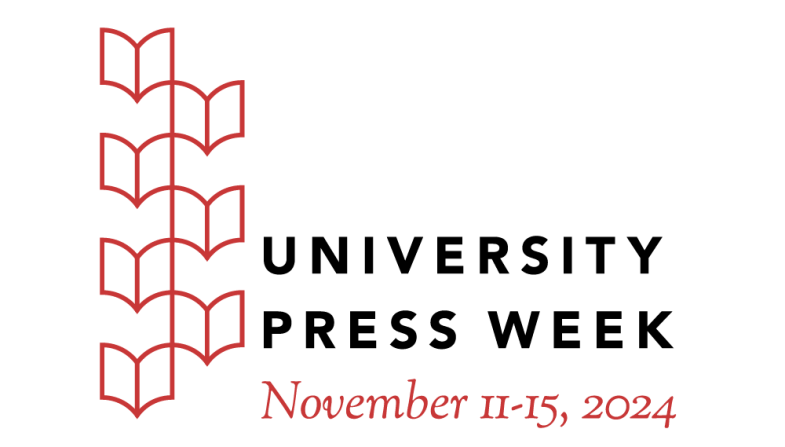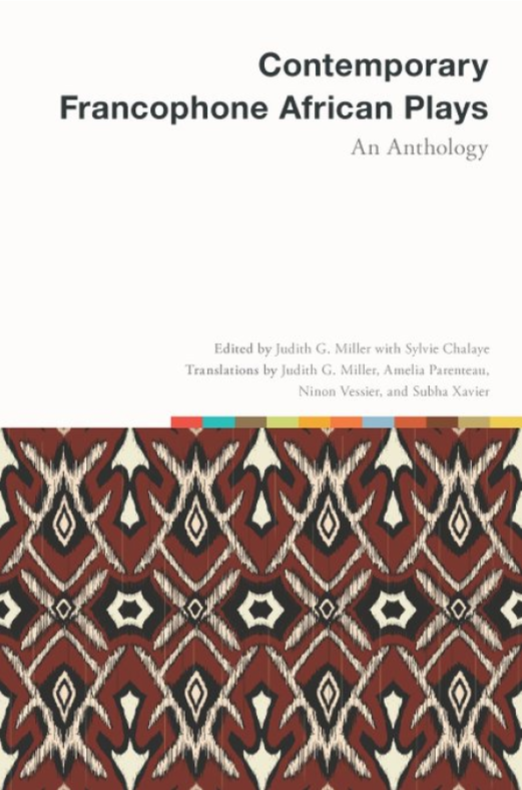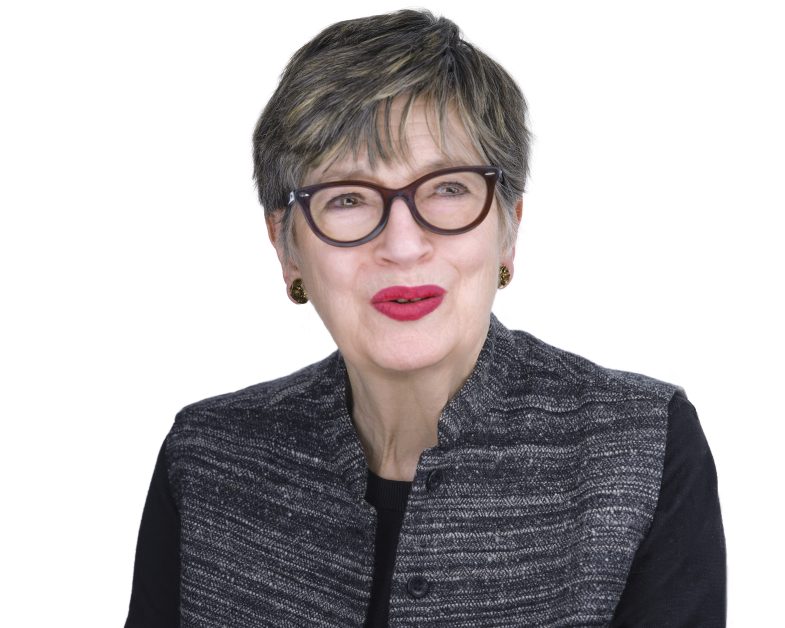
In the summer of 1978, U.S. President Jimmy Carter proclaimed the first University Press Week. Since 2012, members of the Association of University Presses have celebrated this week with events, celebrations, reading lists, and a blog tour.
The theme of this year’s UP Week, November 11-15, is #StepUP, and Bucknell University Press is proud to showcase how our books help to “educate and enlighten, motivate and inspire, support and act,” through our work to foreground underrepresented voices by publishing translations.
Today we speak with Judith G. Miller, editor and translator of the newly-released Contemporary Francophone African Plays: An Anthology, an important volume that gathers English translations of eleven plays dating from 1970 to 2021. This essential collection includes satirical portraits of colonizers and their collaborators (Bernard Dadié’s Béatrice du Congo; Sony Labou Tansi’s I, Undersigned, Cardiac Case; Sénouvo Agbota Zinsou’s We’re Just Playing) alongside contemporary works questioning diasporic identity and cultural connections (Koffi Kwahulé’s SAMO: A Tribute to Basquiat and Penda Diouf’s Tracks, Trails, and Traces…).
Plays in this anthology memorialize the Rwandan genocide (Yolande Mukagasana’s testimony from Rwanda 94), question the status of women in entrenched patriarchy (Werewere Liking’s Singuè Mura: Given That a Woman…), and follow the life of Elizabeth Nietzsche, who perverted her brother’s thought to colonize Paraguay (José Pliya’s The Sister of Zarathustra). Gustave Akakpo’s The True Story of Little Red Riding Hood and Kossi Efoui’s The Conference of the Dogs offer parables about what makes life livable, while Kangni Alem’s The Landing shows the dangers of believing in a better life, through migration, outside of Africa.
BUP: What inspired the selection of plays you translated? What are the stories or experiences you wished to offer to an English-speaking audience?
Judith: I knew that I wanted to present a selection representing the several modes and styles of theatre that have been written (and are currently being written) by Francophone African playwrights. I reviewed, then, almost one-hundred works, selecting those having won a certain acclaim and demonstrating the imaginative breadth and political commitment of the people who wrote or conceived of them—and by political commitment, I mean works grappling with the multifaceted conundrum of who has power and why. I also selected works I personally admire and which I felt I could translate well. I sought, also, to include a chronological range; choosing authors who have been writing theatre in French from the period immediately following decolonization (the 1970s) to the present moment, one in which authors confront in their works the divide between the Global North and Global South. My colleague and friend, Professor Sylvie Chalaye of the University of Paris, helped guide this selection. She also co-wrote an overarching introduction that places the selected plays within a history of African theatre written in French.
African writers, like all writers, create from their need to express and understand the different worlds in which they live. I could not possibly situate the writers represented into some kind of comprehensive model of the African artist. Nevertheless, given the complex and deleterious impact of European colonization, it should not be surprising that the earliest plays in the anthology (by Dadié, Zinsou, Labou Tansi) take on and satirize the iniquitous “civilizing mission” of European powers. Other plays look at seemingly internal, African issues (patriarchy or tribalism, for example)—structural challenges that are also clearly relevant to many other cultures on many other continents. More recent works deal with questions of “othering,” and with creating a self, amidst almost unbearable pressures of war, cultural domination, and self-questioning (Alem, Efoui, Akapo, Kwahulé, and Diouf). I am sure that English-speaking readers and audiences will find other themes and concerns that speak to them.
BUP: What cultural or linguistic elements did you try to preserve in the translation?
Judith: Each of the authors in the anthology presented different translation problems: some terms necessitated an extra phrase in order to make the meaning clear to an Anglophone reader. Other local terms could only be handled correctly, I felt, by adding a note. In almost all instances in which I have translated theatre pieces, I have kept in mind the possibility of performance. I was eager to produce translations that made it possible for readers and actors not to stumble on words or rhythms, to find ways to incorporate into their own bodies what the text has to say. At the same time, I tried not to flatten or “normalize” each author’s language, especially when they, as writers, are invested in highly stylized prose or an unusual vernacular.
BUP: What is the value of contextualizing these plays?
Judith: I would argue that any play can be more meaningful, more impactful, if it is contextualized—for theatre is an intellectual effort and not only an emotional or aesthetic experience. (And contextualization means thinking about when the play was written as well as about when it will be read and/or performed.) Theatre-goers seeing theatre generated from their own culture can often “naturalize” the experience, because they have internalized the context. As many of the plays in this anthology derive meaning from the history of the African continent—particularly the history of colonization and the efforts of decolonizing—contextualizing the plays helps situate the conflict, define the characters, and emphasize the stakes.

“The translator seeks to locate, to grasp, and to bring forth this language in what can only ever be an approximation. In translating theatre, one always hopes to speak directly to an audience, as theatre is the meeting of those on stage with those attending a performance. The essential work of the translator is to find a way to best communicate the author’s particular voice.”
BUP: How might we think of moving from one colonial language to another in translating these plays? How might one think of these languages (English and French) from a decolonial perspective?
Judith: I am of the opinion now that most Francophone and Anglophone speakers in Africa think of the language once understood as the “colonial language” as their own language, not the language of the colonizer. Languages grow and change. French and English have been inflected differently from African country to African country; words have been added and changed; the languages remade according to the cultures of the country. This has meant an enrichment for both French and English. But, the language of an artist, a writer, is not ever simply the language of a country. It is their language—honed, weighed, crossed out and rewritten in the effort to form a personal writing identity, a “vocabulary” that defines the work. The translator seeks to locate, to grasp, and to bring forth this language in what can only ever be an approximation. In translating theatre, one always hopes to speak directly to an audience, as theatre is the meeting of those on stage with those attending a performance. The essential work of the translator is to find a way to best communicate the author’s particular voice.
BUP: How does the anthology contribute to the fields of performance studies and theatre history?
Judith: The anthology continues the considerable work finally being done in bringing Francophone African live arts to the attention of Anglophone readers and students. It claims a space for Francophone African playwrights on the stages of the world. It also traces what might be considered an evolution in the theatre being done by Francophone African writers, moving from a central concern with colonial and decolonial politics to a celebration of diasporic connections.
BUP: Can you talk about what the future of translation might be and of what translation offers in terms of consciousness?
Judith: I am certainly not an expert in artificial intelligence, so I dare not speculate on how sensitive and knowing a machine’s translation expertise may become one day. Of course, we do seem to know that at present machines are inadequate tools for translating the work of artists. What I personally believe is that a good literary (or theatrical) translator must have an empathic imagination. They must also be a good writer, who is attuned to the text being translated and to the context out of which it comes. A good (human) translator also loves words and what they can do. This emotional involvement in translation helps transform the translator, allowing them to live in two linguistic spaces at once. Engaging with another language at any level is, in fact, a deeply transformative experience. One begins to understand how much our individual worlds are structured by the way we are able to think about them through the languages we possess.
Translated works can lessen the gap between cultures, help people see commonalities that run across diverse societies. It seems to me that translation, which has existed as long as humans have been on the earth, helps keep the world and the mind open. I believe its future is assured, probably in many different ways, because, in the end, there is too much at risk if translation stops—including the shrinkage of human possibility.
Contemporary African Francophone Plays is available to order here in paperback, hardback, and ebook.
Judith G. Miller is an emerita professor of French at New York University. She has published over thirty translations of plays, essays, and novels, most recently The Théâtre du Soleil, the First Fifty-Five Years by Béatrice Picon-Vallin and And the Whole World Quakes: Chronicle of a Slaughter Foretold, a play by Haitian author Guy Régis Jr., in New Plays from the Caribbean, ed. Stéphanie Bérard.

Photo by Ellen D. Kolikoff, n-kphotography.com